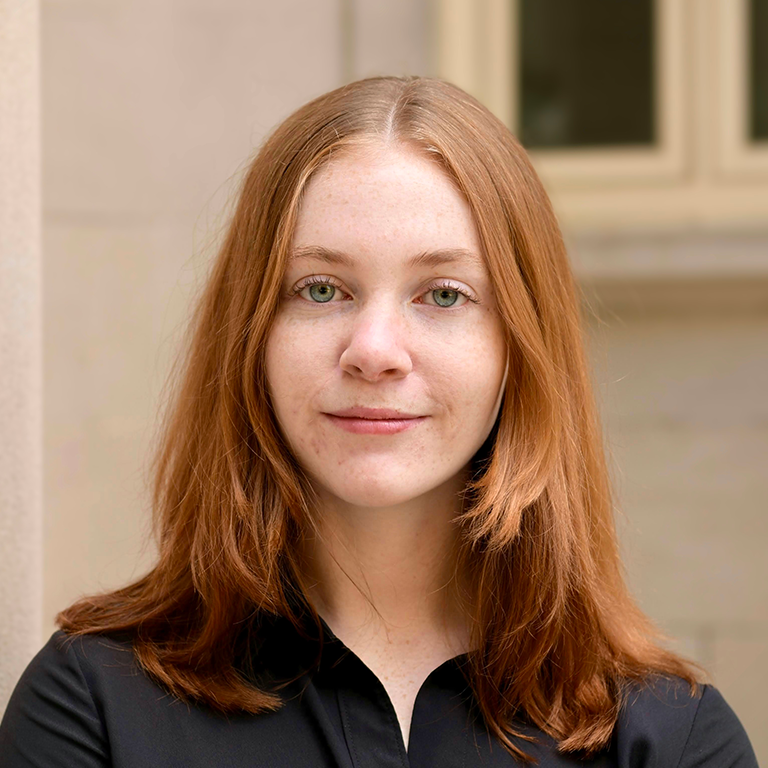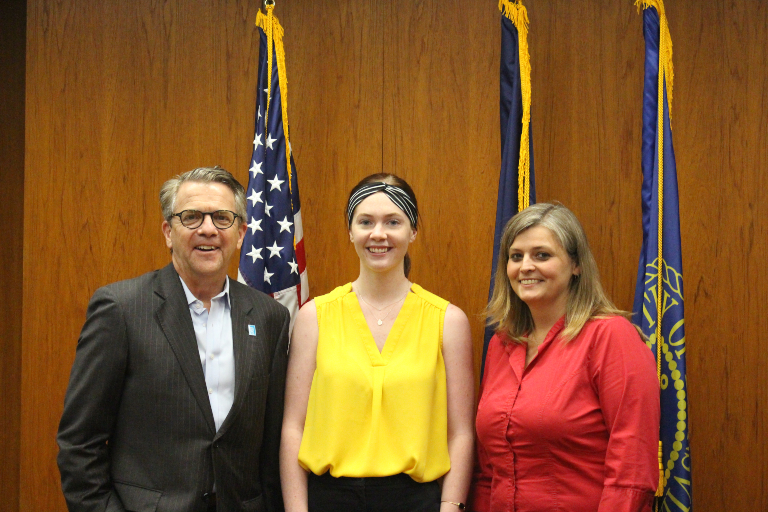This Q&A series highlights McKinney Climate Fellows alumni and their professional journeys within Indiana and beyond. The McKinney Climate Fellows program, administered by Indiana University’s Environmental Resilience Institute and Integrated Program in the Environment, connects IU undergraduate and graduate students interested in climate, sustainability, and community resilience with career experiences.
As a high school senior, Erin Lasher learned about climate change and its devastating impacts for the first time. When she started college, Lasher sought out opportunities to channel her climate anxiety into action. Her search led her to McKinney Climate Fellows, where she had the opportunity to work with the Indiana Recycling Coalition and the City of Evansville.
The experience equipped Lasher with new skills that helped her immediately land a job in the sustainability sector upon graduation from IU Bloomington in 2020. Today, Lasher works as a target validation manager with the Science Based Targets initiative, a London-based corporate climate action organization that enables companies and financial institutions worldwide to play their part in combating the climate crisis.
The following interview has been lightly edited for length and clarity.
What years did you participate in the McKinney Climate Fellowship and where was your placement?
In 2018, I was placed with the Indiana Recycling Coalition, now called Circular Indiana. In my second year, I was placed with the City of Evansville, my hometown. It was nice to go home and get to do work for my city.
What major projects did you work on during your McKinney Climate Fellows placement with Circular Indiana and Evansville?
In my first year, I was doing administrative support for the Indiana Recycling Coalition and helped plan and run their annual conference. I also went through their recycle search database, which was a resource that listed what and where you can recycle at specific locations in Indiana. For the City of Evansville, I did their first ever greenhouse gas inventories, both at the community level and for local government operations. I restarted and ran a Solarize Evansville program, where we got about 38 new solar projects installed in the city.
What did you learn as a McKinney Climate Fellow and how did it inform your career path?
Being a McKinney Climate Fellow is the reason that I’m on the path that I am. My entire career trajectory so far has come back to the fact that I learned how to do a very valuable skill, greenhouse gas inventories. Because I learned this early in my career, I’ve been able to keep building off that. I’ve gone from local government to state government and now to the corporate level. Being a fellow exposed me to a skill that I would not have picked up otherwise.
I also built-up confidence through the program. My first year in the program, I had just finished my freshman year of college. This was my first ever internship, so I was nervous going into it. During my second year, I did a lot of stakeholder engagement. It got me comfortable speaking in front of people. I gained technical skills, but also soft skills from the program.
What called you to pursue a career focused on climate and sustainability?
I signed up for an environmental science class in my last year of high school on a whim and got exposed to many environmental issues and climate change. I was originally planning on going down a totally different path, but taking that class opened my eyes to this field. I felt inherently called to do something about it. I wanted to dedicate my life to something I’m truly passionate about.




